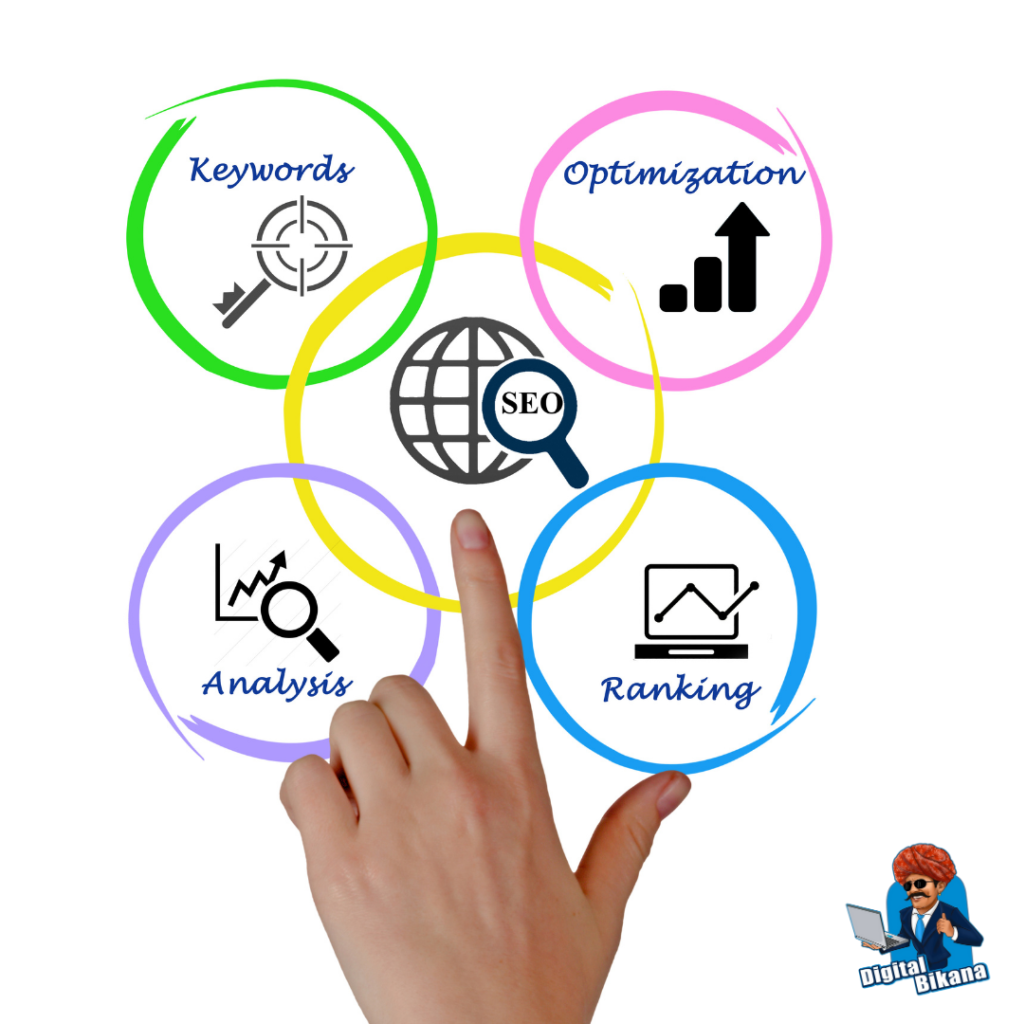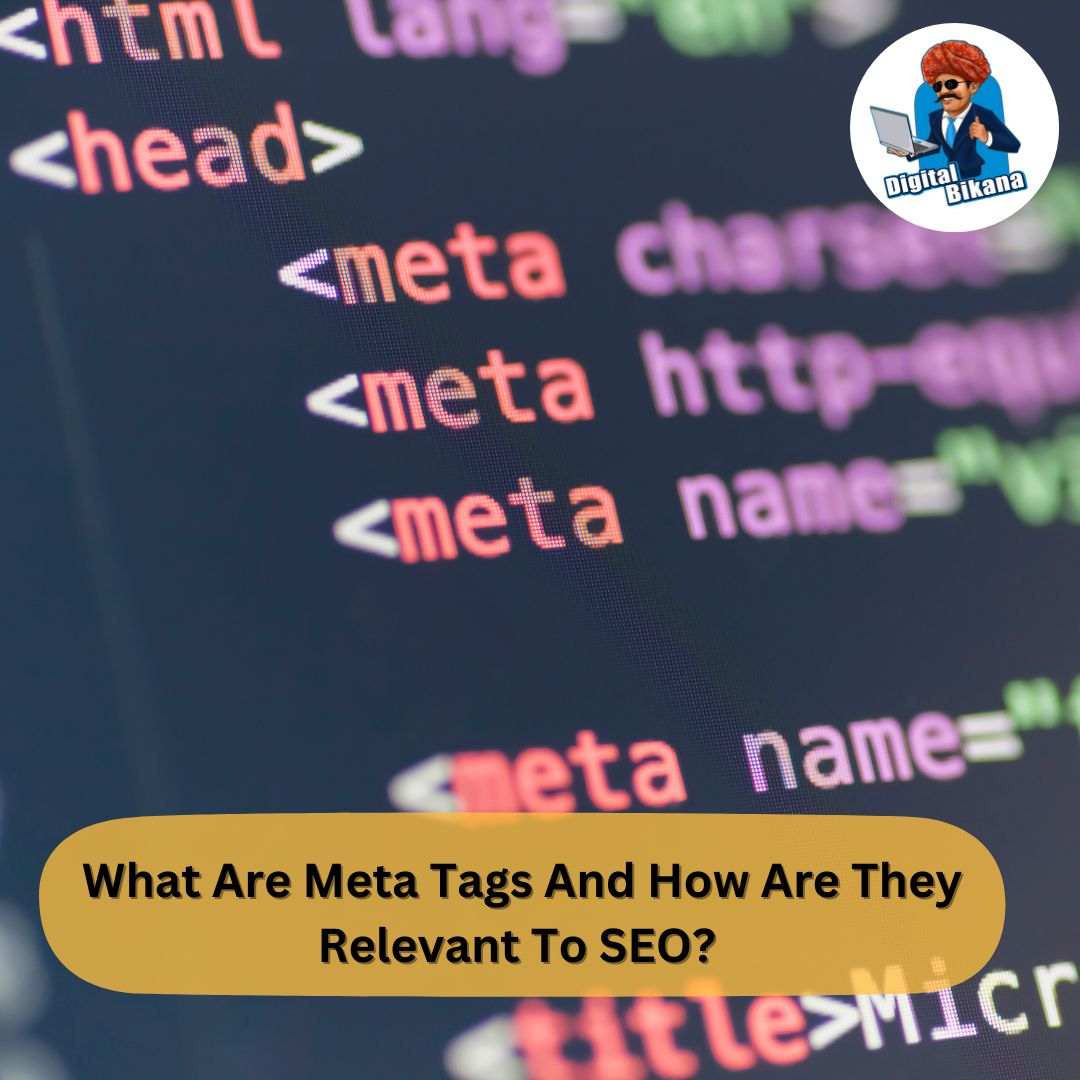What are Meta Tags and how are they relevant to SEO?
In this article we are going to talk about What are meta tags and how are they relevant to SEO? In the world of search engine optimization (SEO), meta tags play a crucial role in optimizing web pages for better visibility and ranking in search engine results. Meta tags are snippets of text embedded in the HTML code of a webpage that provide information about the page’s content. They offer concise descriptions to search engines and website visitors, enabling both to understand the purpose and relevance of the page. In this article, we will explore what meta tags are, their different types, and why they are essential for SEO.
What are Meta Tags and how are they relevant to SEO?
In this article, we will explore what meta tags are, their different types, and why they are essential for SEO.
Understanding Meta Tags:
Meta tags consist of HTML tags that provide metadata or data about the webpage. They don’t directly affect how the page is displayed visually but are used by search engines and other applications to gather information. Meta tags are placed within the head section of the HTML code and are not visible on the actual webpage.
Types of Meta Tags:
1. Meta Title Tag
The meta title tag, also known as the title tag, is one of the most critical meta tags for SEO. The meta title tag specifies the webpage’s title, which is displayed as the clickable headline in search engine results. A well-crafted title tag should accurately describe the content of the page, contain relevant keywords, and be concise, compelling, and unique for each page.
2. Meta Description Tag
The meta description tag gives a short overview of what the webpage’s content is about. It appears below the title tag in search engine results and influences the click-through rate (CTR) of the page. While not a direct ranking factor, a compelling and keyword-rich meta description can entice users to click on the link and visit the webpage. It is advisable to keep the meta description concise, within 150-160 characters, and make it engaging and relevant to encourage user engagement.
3. Meta Keywords Tag
Previously, the meta keywords tag played a significant role in SEO, as it allowed website owners to specify relevant keywords related to their content. However, due to abuse and keyword stuffing, search engines no longer give much weight to this tag. Most search engines, including Google, have deprecated the meta keywords tag, meaning it doesn’t significantly impact search rankings.
Read Also: What is the Significance of Backlinks in SEO?
4. Meta Robots Tag
The meta robots tag informs search engine crawlers about how to interact with the webpage. It provides instructions such as whether to index the page, follow its links, or display it in search results. Common values for the meta robots tag include “index” (allow indexing), “nofollow” (do not follow links on the page), “noindex” (do not index the page), and “noarchive” (do not store a cached copy of the page).

Importance of Meta Tags for SEO:
1. Enhanced Search Engine Visibility
Well-optimized meta tags, particularly the title tag and meta description, can significantly improve a webpage’s visibility in search engine results. A compelling title tag can attract users’ attention and encourage them to click on the link, thereby increasing organic traffic. A concise and descriptive meta description can give users a clear idea of what to expect from the page, leading to higher CTR.
2. Keyword Optimization
Meta tags provide an opportunity to include relevant keywords related to the webpage’s content. While meta tags alone do not heavily influence search rankings, incorporating targeted keywords in the title tag and meta description can indirectly impact SEO by aligning the page with user search queries.
Read Also: How to improve your website’s loading speed for better SEO?
3. User Engagement and Click-Through Rates
Engaging and informative meta tags can entice users to click on the search result and visit the webpage. By providing accurate and enticing information in the meta tags, website owners can increase the likelihood of user engagement, reduce bounce rates, and improve overall user experience.
4. Social Media Sharing
When web pages are shared on social media platforms, meta tags, particularly the meta title and meta description, are often used as the default content for the shared link. Optimized meta tags can make the shared content more appealing, descriptive, and visually consistent, increasing the chances of engagement and click-throughs on social media platforms.

5. Branding and Consistency
Meta tags, especially the title tag, contribute to branding and establishing a consistent online presence. A well-crafted and consistent title tag across web pages can help users recognize and remember a brand. Consistent meta tags also contribute to a professional and organized website appearance.
You can also checkout this digital marketing institute to learn digital marketing course by enrolling in our course Or Contact Digital Bikana on +91-8949483728
Conclusion:
Meta tags are an integral part of SEO, providing important information about web page content to search engines and users. While their direct impact on search rankings may have diminished over time, well-optimized meta tags, including title tags and meta descriptions, can significantly enhance a webpage’s visibility, click-through rates, and user engagement. By understanding the relevance and best practices of meta tags, website owners can improve their SEO efforts and effectively communicate the value of their web pages to both search engines and users. So, Now I hope you have understood about What are Meta Tags and how are they relevant to SEO?

